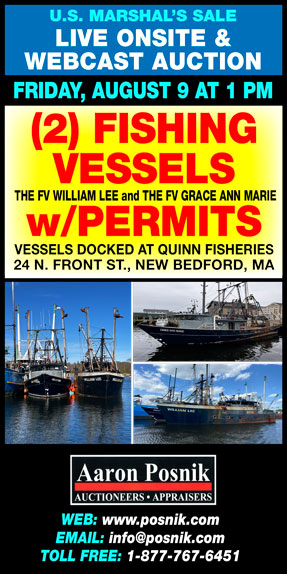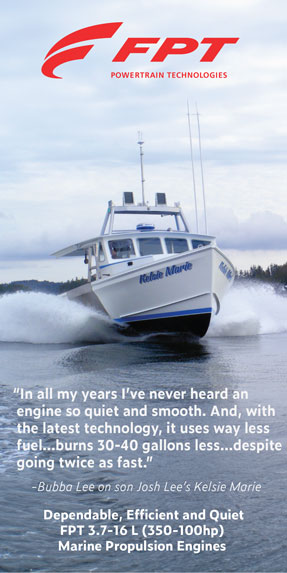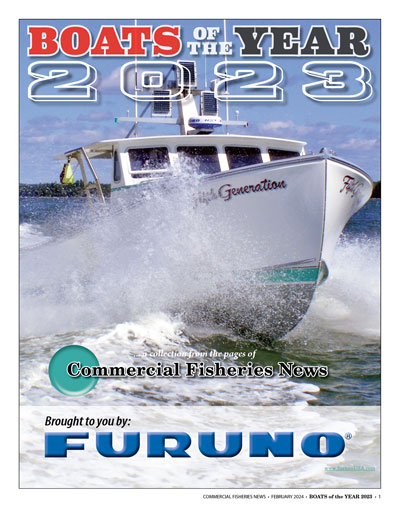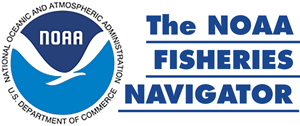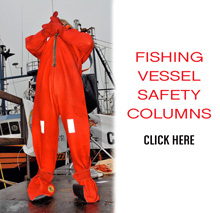In the fall of 2012, the Atlantic Coastal Cooperative Statistics Program (ACCSP) brought together fishermen, dealers, and fisheries managers to better understand the potential pros and cons of electronic reporting.
Electronic reporting by fishermen and dealers clearly has its advantages. Fisheries managers have access to more timely data, allowing them to better monitor catch and more closely manage quotas. Scientists benefit from more detailed and precise data. And law enforcement officials can more easily keep an eye on reporting compliance.
But what are the benefits for industry people?
The first initiative of the ACCSP-convened group was to design a survey, which was distributed from Dec. 1, 2012 to July 14, 2013, to collect attitudes and opinions on electronic reporting systems through the eyes of industry.
“Fishermen and data managers both appear to have strong opinions on electronic reporting programs, so this project was begun to describe those opinions and better understand their basis,” explained project leader John Carmichael, who also serves as Science and Statistics Program manager for the South Atlantic Fishery Management Council.
While there was some hesitation in transitioning from paper to electronic reporting, overall, the survey indicated that that there are significant pluses for fishermen and dealers no matter how they report electronically – through the Standard Atlantic Fisheries Information System (SAFIS), file upload, or trip ticket, for example.
The survey question with the most compelling set of responses was: “If you have experience with electronic reporting, please share with us the key advantages.”
After reviewing the over 1,950 responses we received, it became evident that industry members thought there was quite a bit to gain by using electronic reporting options.
The following is a compilation of survey responses from industry on the values of electronic reporting options.
Electronic reporting:
• Reduces stress – With electronic reporting, there is no more searching around for old paper reports. The data are easily accessible and readily organized to quickly print out for your records. This at-your-fingertips information is useful when it comes time to do your taxes at the end of the year.
• Increases confidence in your reporting – Once you’ve entered a fishing report, you immediately receive a confirmation that your information has been submitted to keep for your records. Also, by reporting when you find it convenient, you can minimize errors.
• Reliable – Electronic reporting initiatives are designed to obtain the most accurate information from you. If reporting programs find conspicuous errors, they flag them before you submit a report so you can correct them. For dealers, SAFIS has an integrated price board that dynamically adjusts its prices through time.
• Secure – The data you report are kept on external servers, providing a measure of security in case your computer crashes.
As one respondent said, “It’s a great feeling knowing my data is backed up on a database. I can get the reports back by setting up on another computer and making a simple phone call.”
• Quick – Data are saved in the system so that when you go back in to enter new report information, you don’t have to re-enter basic information. As one respondent said, “All of my information is already saved into my favorites. All I do is enter the date, species, pounds, and hit save and I am done!”
Also, each state and federal system is designed to gather the information that is relevant to your area, so there is no unnecessary data entry. In addition, electronic reporting eases the burden of fumbling around with a large vessel trip report book every day.
• Convenient – Electronic reporting can be done from the comfort of your own home or from the field. As one respondent said, “I report at the end of each day so there is no need to scramble to get a paper report done all at once. Doing an ‘all-at-once’ paper report requires gathering all the slips from the week, which can be quite insane.”
SAFIS is the only web-based electronic reporting system that is available from any computer and can be used without downloading additional software.
• Economical – Electronic reporting is an efficient way to enter and store information and with increased efficiency comes an increase in your bottom line. And
• A priceless business tool – With the ability to assemble and examine records quickly, you can easily review your catch history when planning future trips.
As one respondent said, “What’s fantastic from a business perspective are the reports I can quickly generate to review how well – or not well – we’ve been doing lately.”
The data entered into SAFIS can even be downloaded and shared in other formats such as Excel spreadsheets.
How to get started
To begin reporting electronically you may want to contact your state or federal fisheries agencies to see what options are available to you. Below are two popular options dealers, fishermen, and/or anglers may be able to use to make the most of their fishing experience.
The first is SAFIS, which includes a number of real-time, web-based reporting systems created by the state program partners of the ACCSP to collect catch and effort data on the Atlantic coast.
These reporting systems include the following.
- eDR, which provides dealers with an online form that satisfies multiple state and federal reporting requirements and gives dealers the option to upload electronic files instead of manually entering data. Dealers can view data-of-record with confidential access.
- eTRIPS, which provides fishermen an online form that satisfies multiple state and federal reporting requirements and allows them to view data-of-record with confidential access.
- e-1Ticket, which is a web-based trip ticket form to collect trip, effort, and catch data and simultaneously create a dealer report. And
- eLogbooks, which is a web-based application that collects data from private recreational anglers on a voluntary basis.
For more information or to sign up for any of these online reporting options, please visit the SAFIS website at www.accsp.org/safis.htm.
In addition to the above online resources, dealers can use a computer-based trip ticket form to report commercial landings information into SAFIS.
This option does not require a full-time Internet connection. There are several different versions of this trip ticket system deployed from Maine to Florida. For more information about computer-based trip ticket options, please contact your state or federal fisheries agencies.
Ann McElhatton
 Ann McElhatton is program manager for the Atlantic Coastal Cooperative Statistics Program (ACCSP), which is a collaborative of 23 coastal resource agencies along the Atlantic Coast formed in 1995 to set common standards and produce dependable and timely marine fishery statistics for Atlantic coast fisheries.
Ann McElhatton is program manager for the Atlantic Coastal Cooperative Statistics Program (ACCSP), which is a collaborative of 23 coastal resource agencies along the Atlantic Coast formed in 1995 to set common standards and produce dependable and timely marine fishery statistics for Atlantic coast fisheries.
She may be reached by phone at (703) 842-0782 or by e-mail at Ann.McElhatton@accsp.org.



